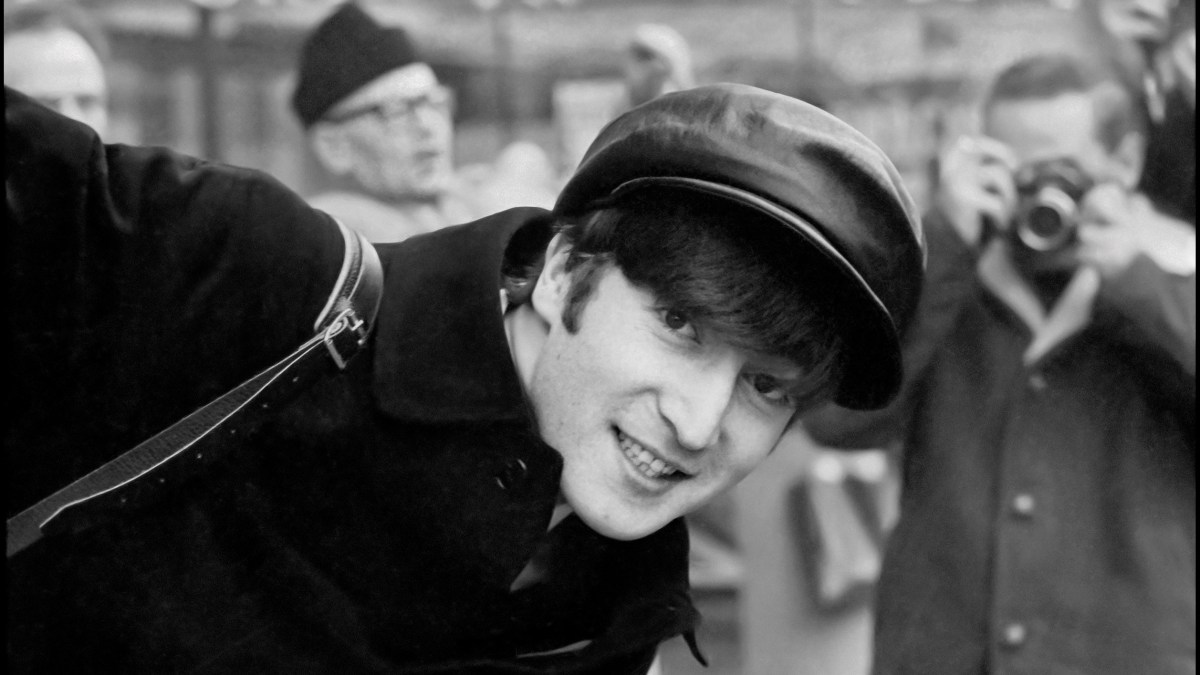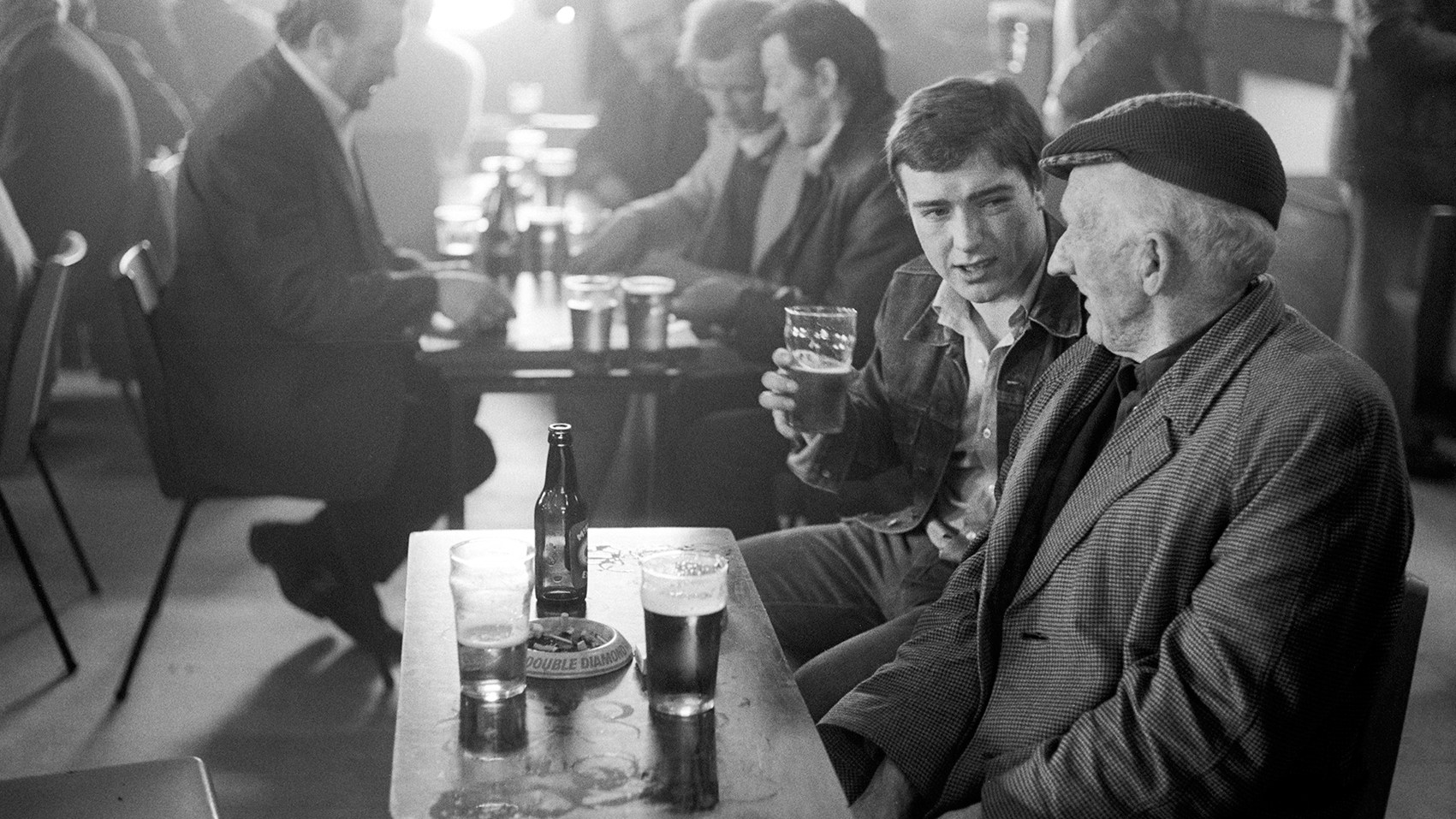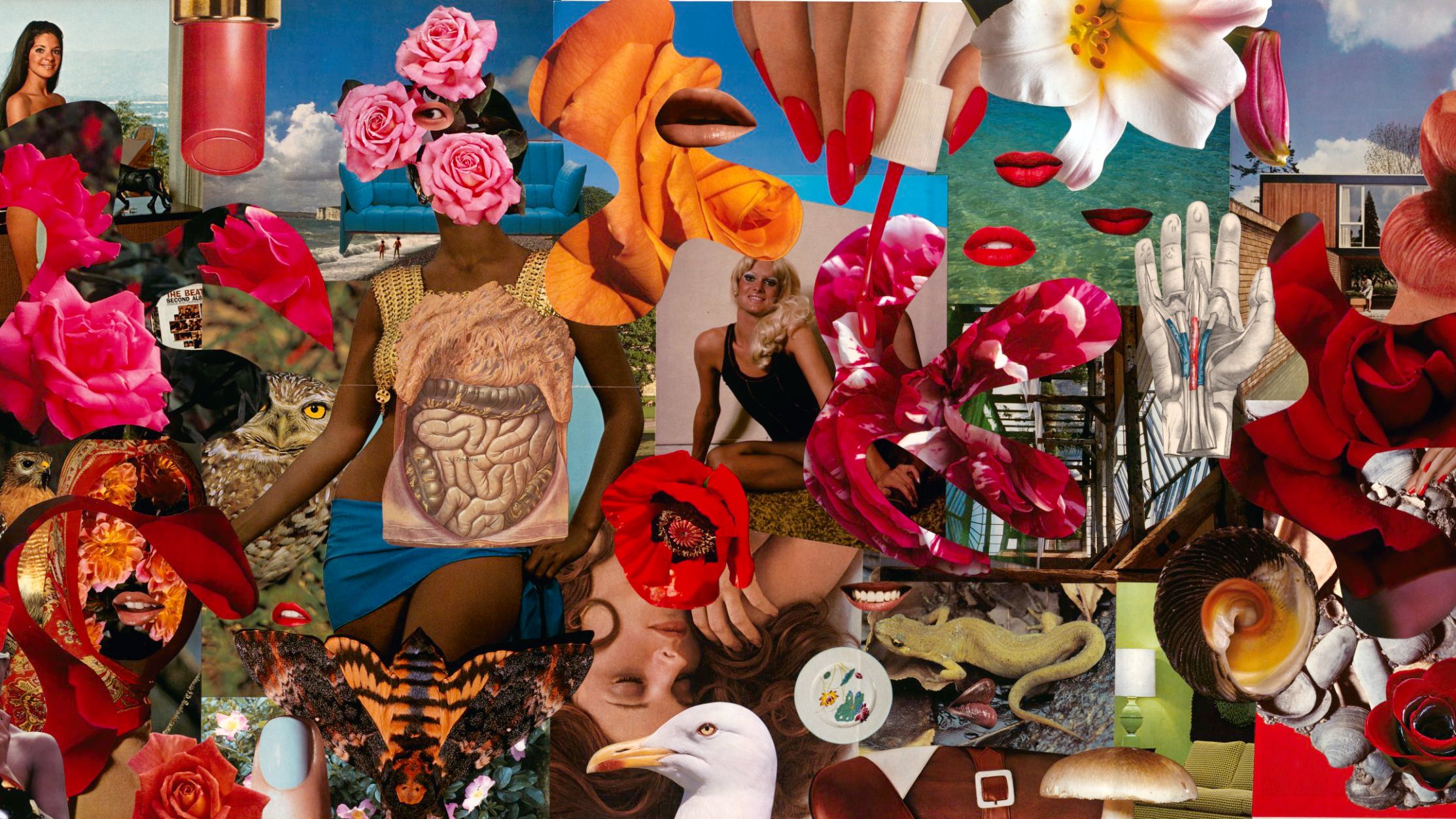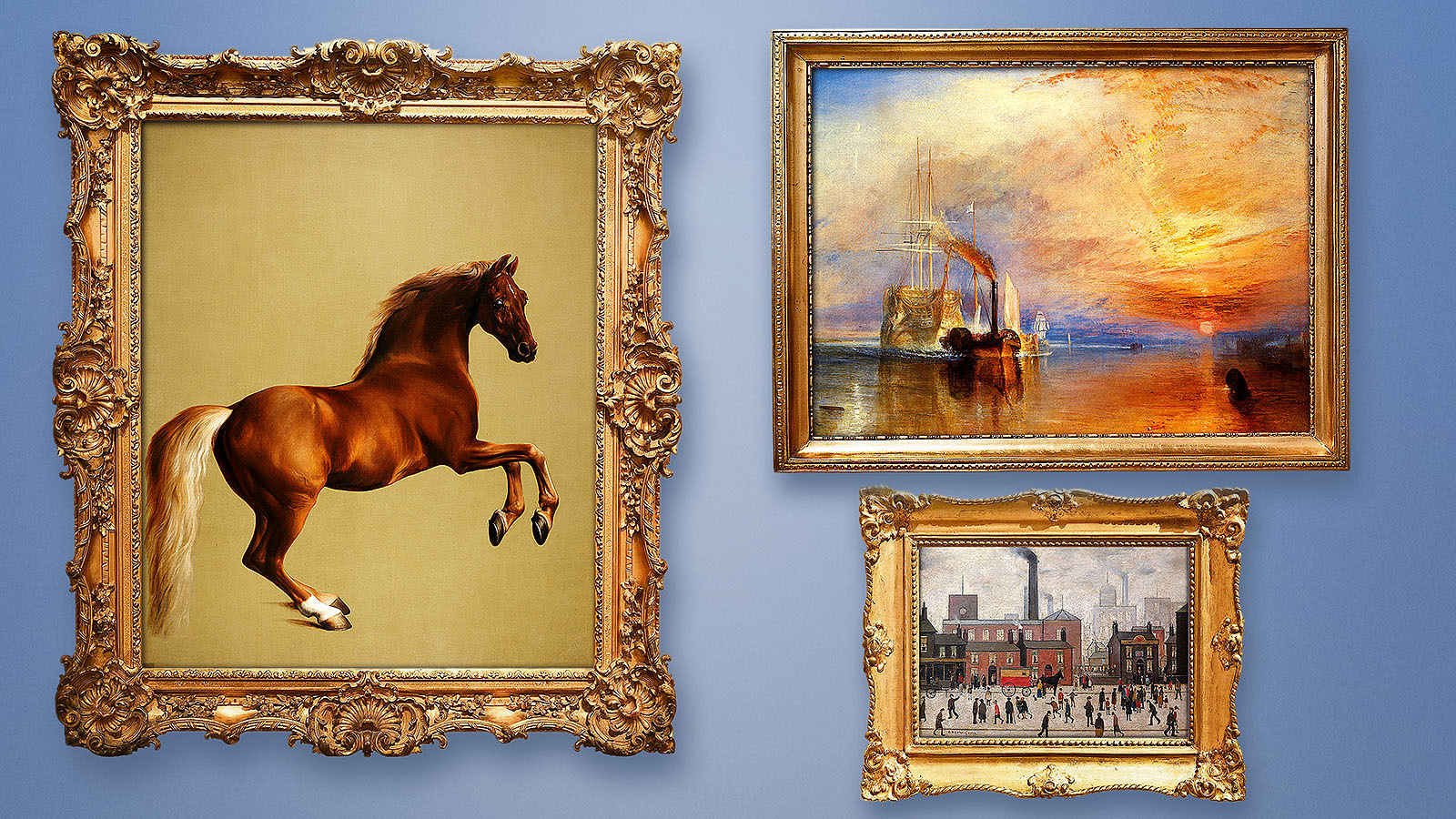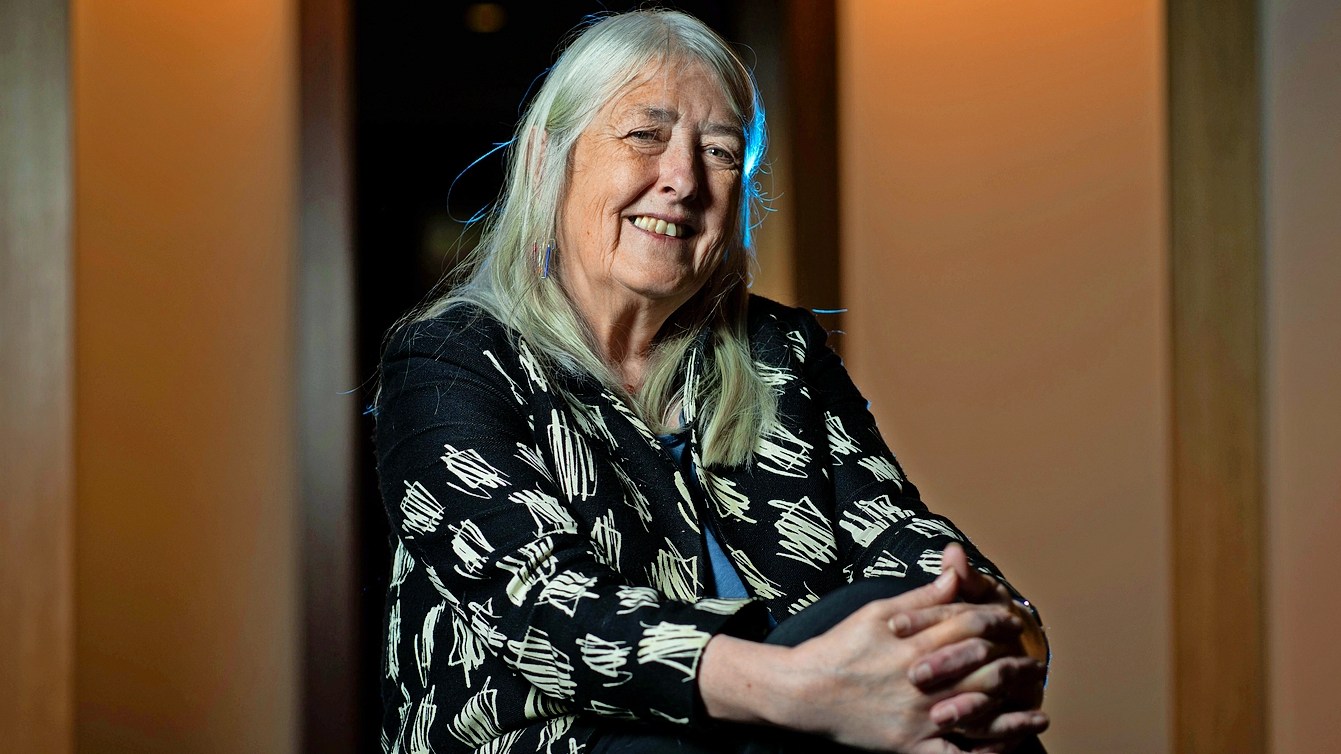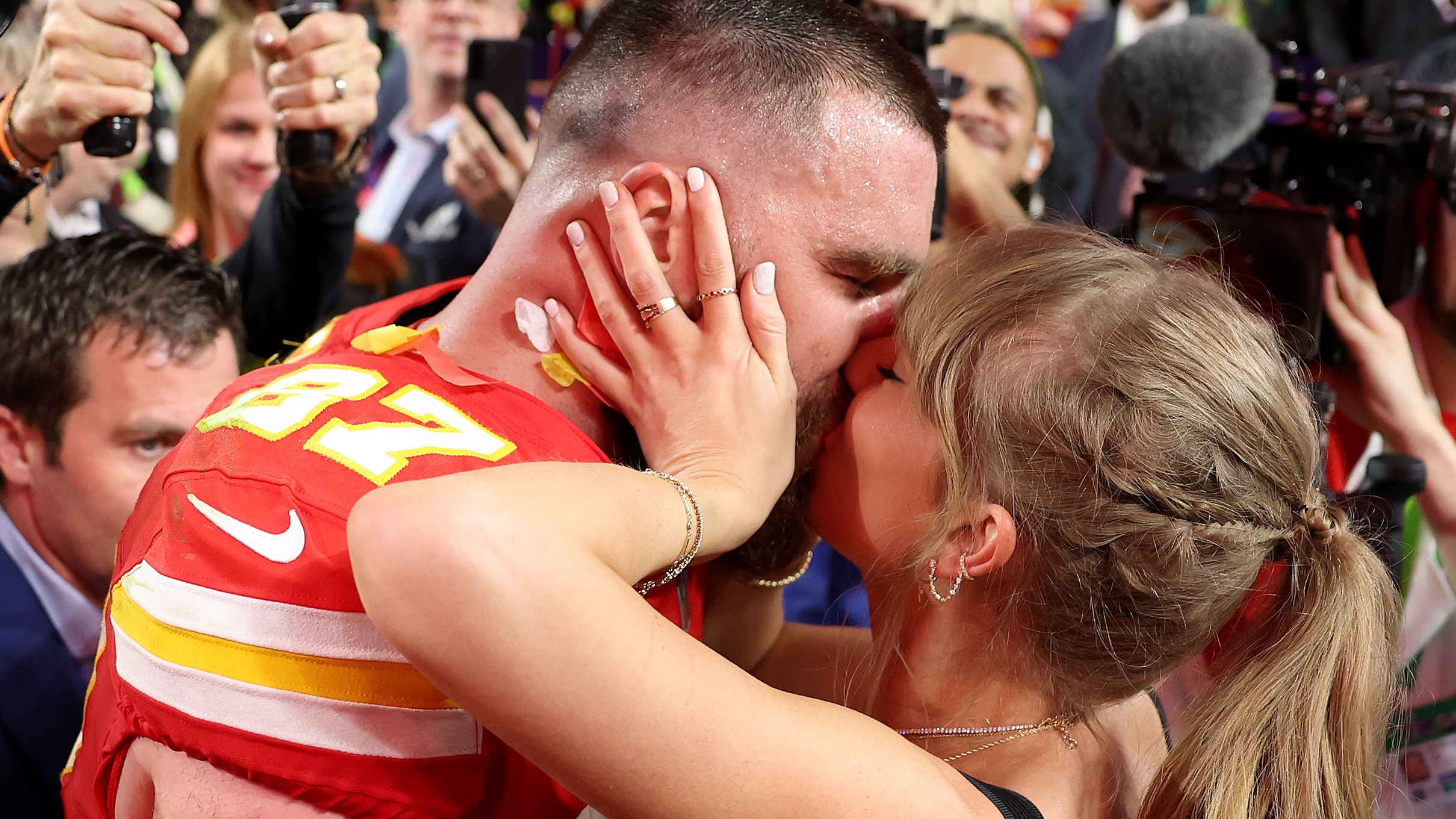Paul McCartney: Rearview Mirror review — the Beatle’s snaps go on sale
, The Times
The term “affordable” is always relative but when it comes to something that many people would give their eye teeth for, in an art gallery that famously deals in work by figures such as Anselm Kiefer, Richard Serra and Damien Hirst, it’s not entirely inaccurate.
• Notting Hill in 1970, the summer Carnival was cancelled — in pictures
You can pick up one of the 12 prints on display at Gagosian Gallery Davies Street in London for anything between $20,000 and $85,000 (£15,000 to £63,000). A bargain, when you consider that they’re the recently rediscovered juvenile work of a photographer named Paul McCartney.
We saw some of these images as part of a much bigger exhibition at the National Portrait Gallery in 2023. The pictures, which were taken during the early months of Beatlemania and thought lost, were uncovered in McCartney’s archive during the pandemic — but this is the first (and possibly the only) time that he’s issued any of them as hand-signed limited editions, of between six and eight, for sale.
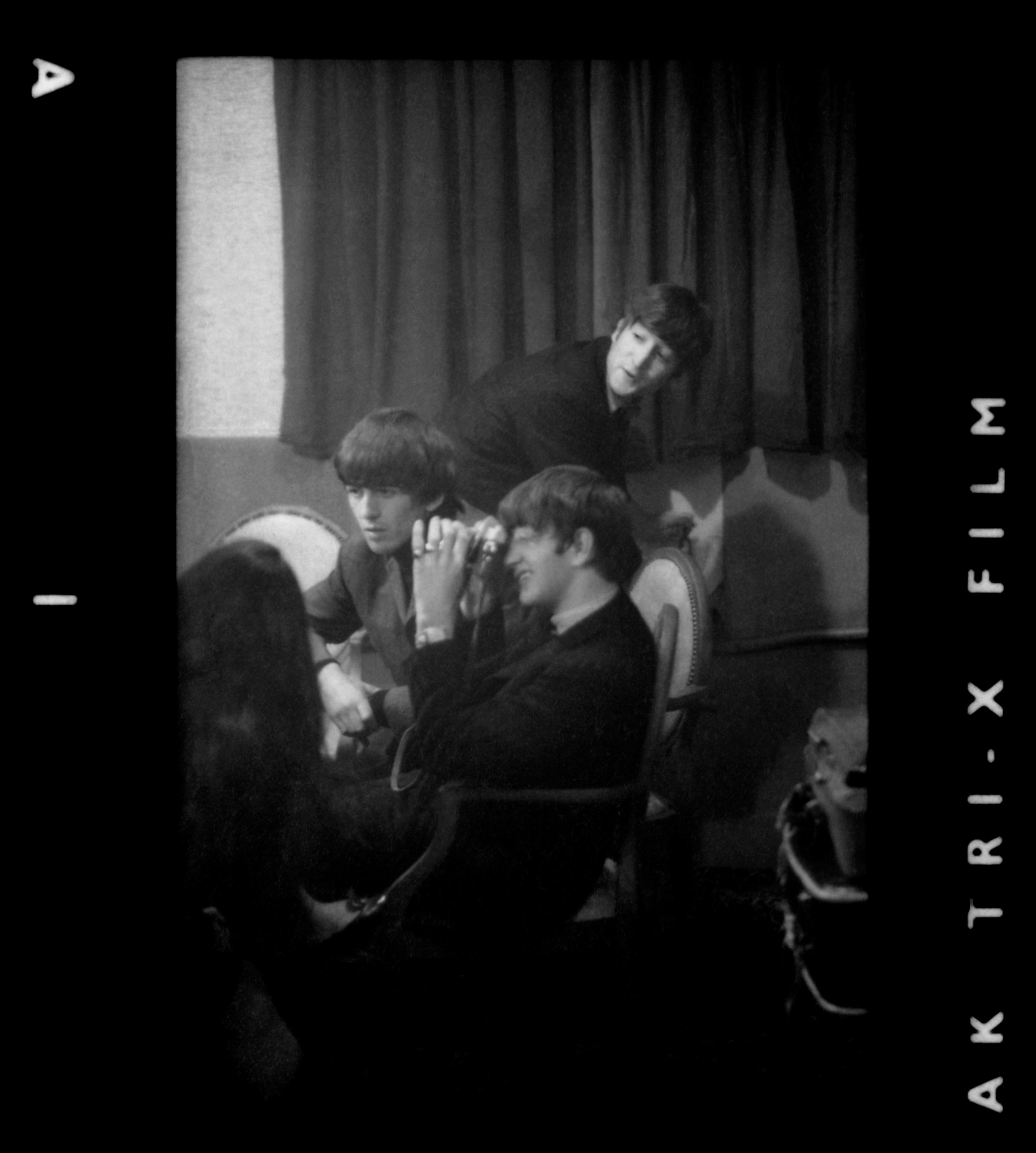
Dressing room at the Lewisham Odeon, December 8, 1963
PAUL MCCARTNEY: REARVIEW MIRROR
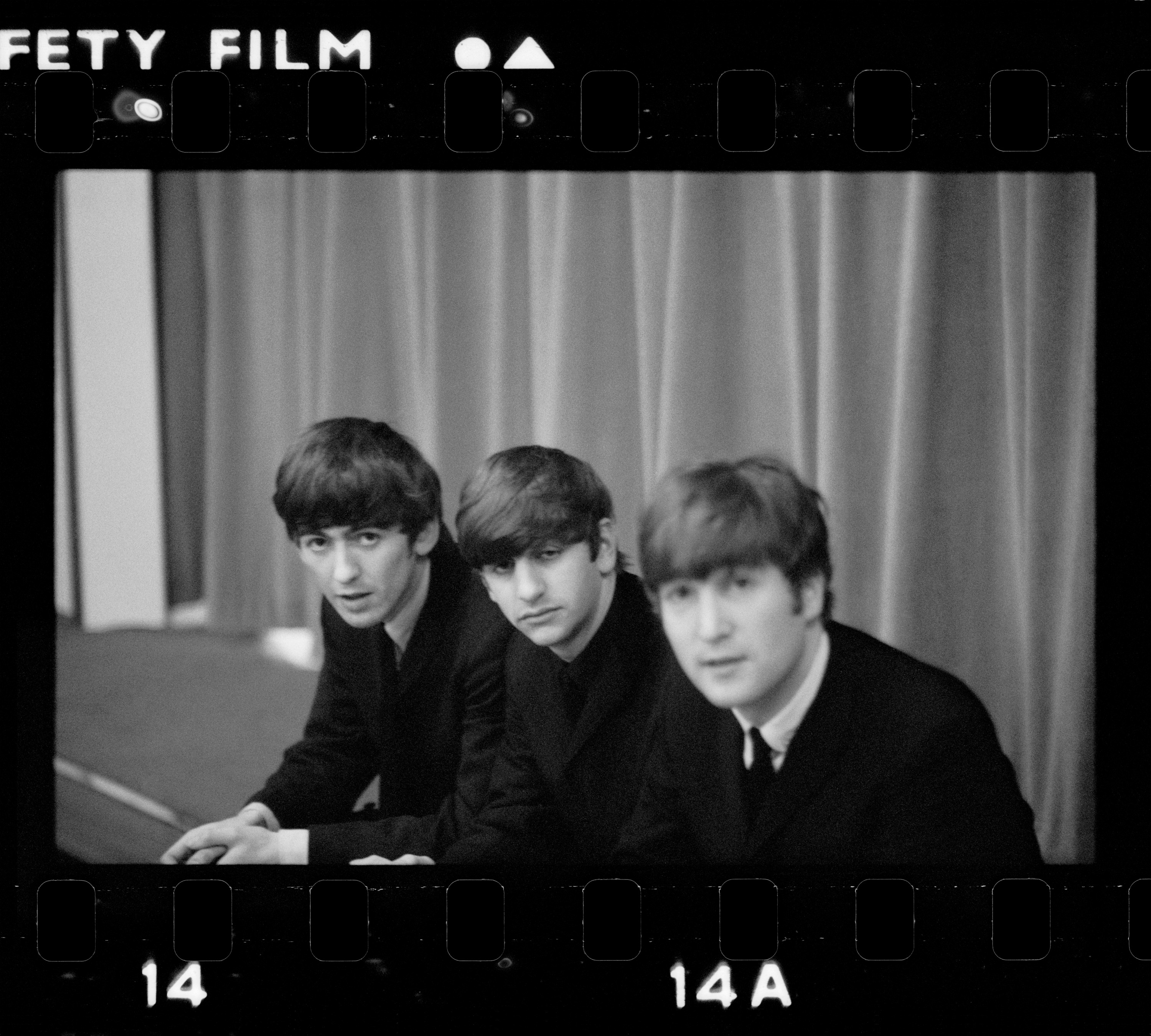
George, Ringo and John backstage at the Finsbury Park Astoria, December 1963
PAUL MCCARTNEY: REARVIEW MIRROR
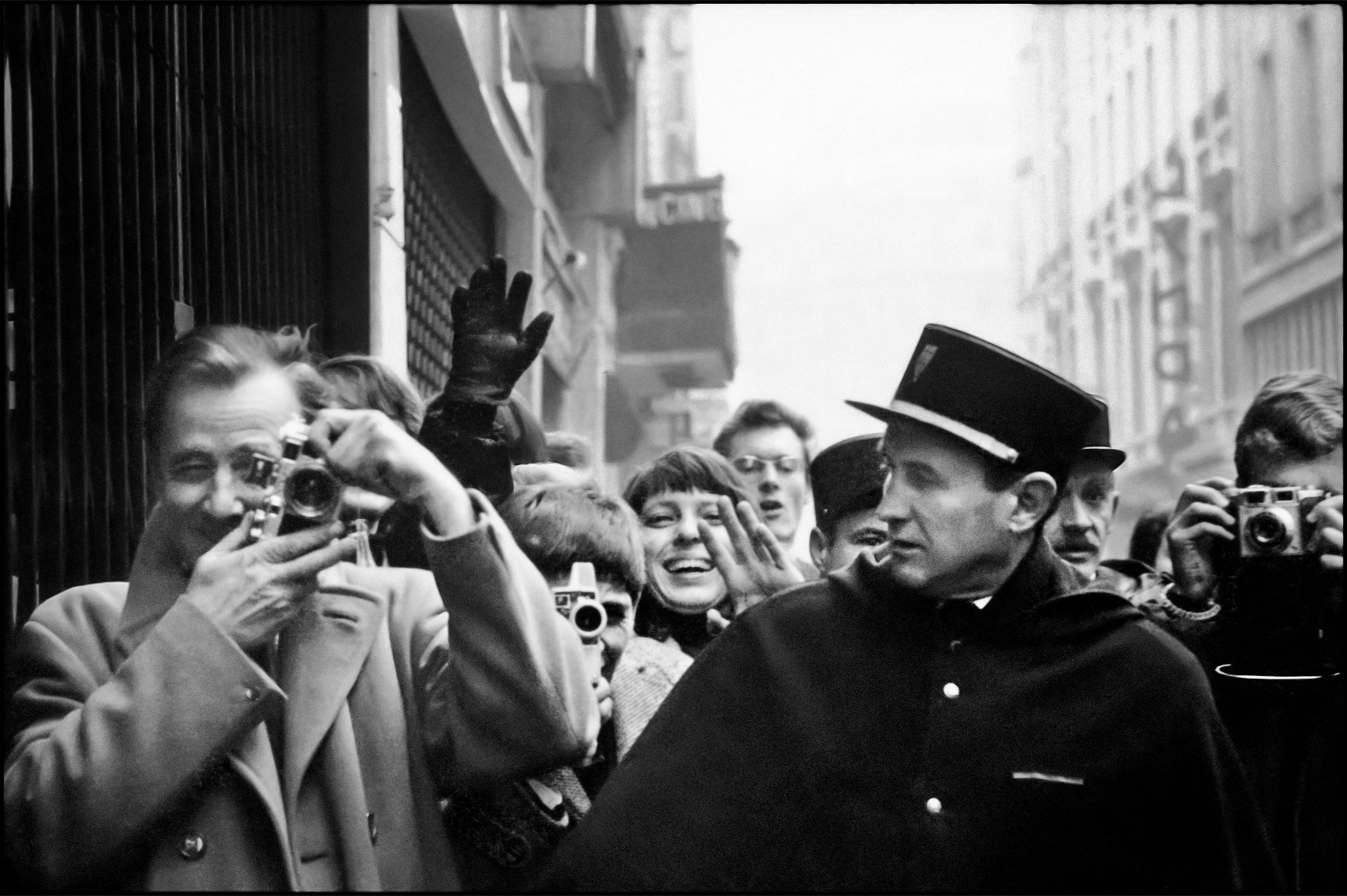
Photographers, fans and police in Paris, January 1964
PAUL MCCARTNEY: REARVIEW MIRROR
Most of the negatives are indeed lost, so these, predominantly black and white, have been recreated from tiny contact sheets, carefully cleaned and blown up. They’ve been remastered, if you like, and printed with a hybrid digital and manual process that enhances their clarity while preserving their analogue materiality.
They are worth seeing and not just for their cultural significance, though that is huge. Shot over the two months before the Beatles’ arrival in America, they’re a rock photography unicorn in that they show you exactly what you want to see (genuinely intimate moments and things the band themselves were seeing for the first time) through the eyes of the person whose head you really want to get into.
In one of the two back rooms (just ask to see them, it’s fine) there’s a lovely image of John Lennon playing a Gibson guitar in a hotel room, hours before the telegram arrived notifying them that I Want to Hold Your Hand had gone to No 1 in the US, and the famous pillow fight ensued (captured by Harry Benson, a photojournalist who appears here, looking annoyed that he’s been sent to Paris to cover this bunch of idiots. He quickly became one of the pack).
• David Bailey at 87: ‘It’s always about the next picture’
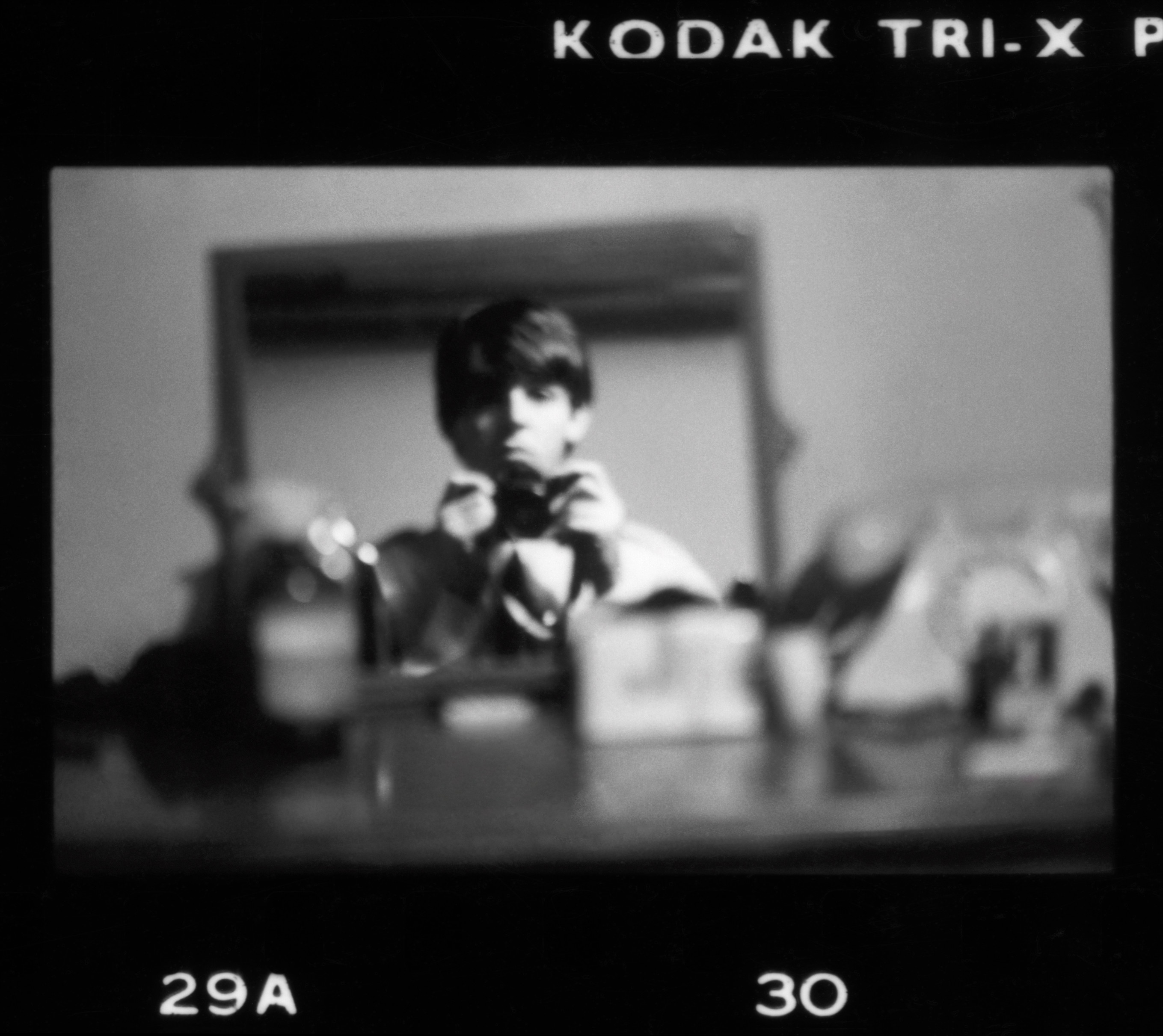
Self-portrait at the family home of McCartney’s girlfriend, Jane Asher, in Wimpole Street, London, December 1963
PAUL MCCARTNEY: REARVIEW MIRROR
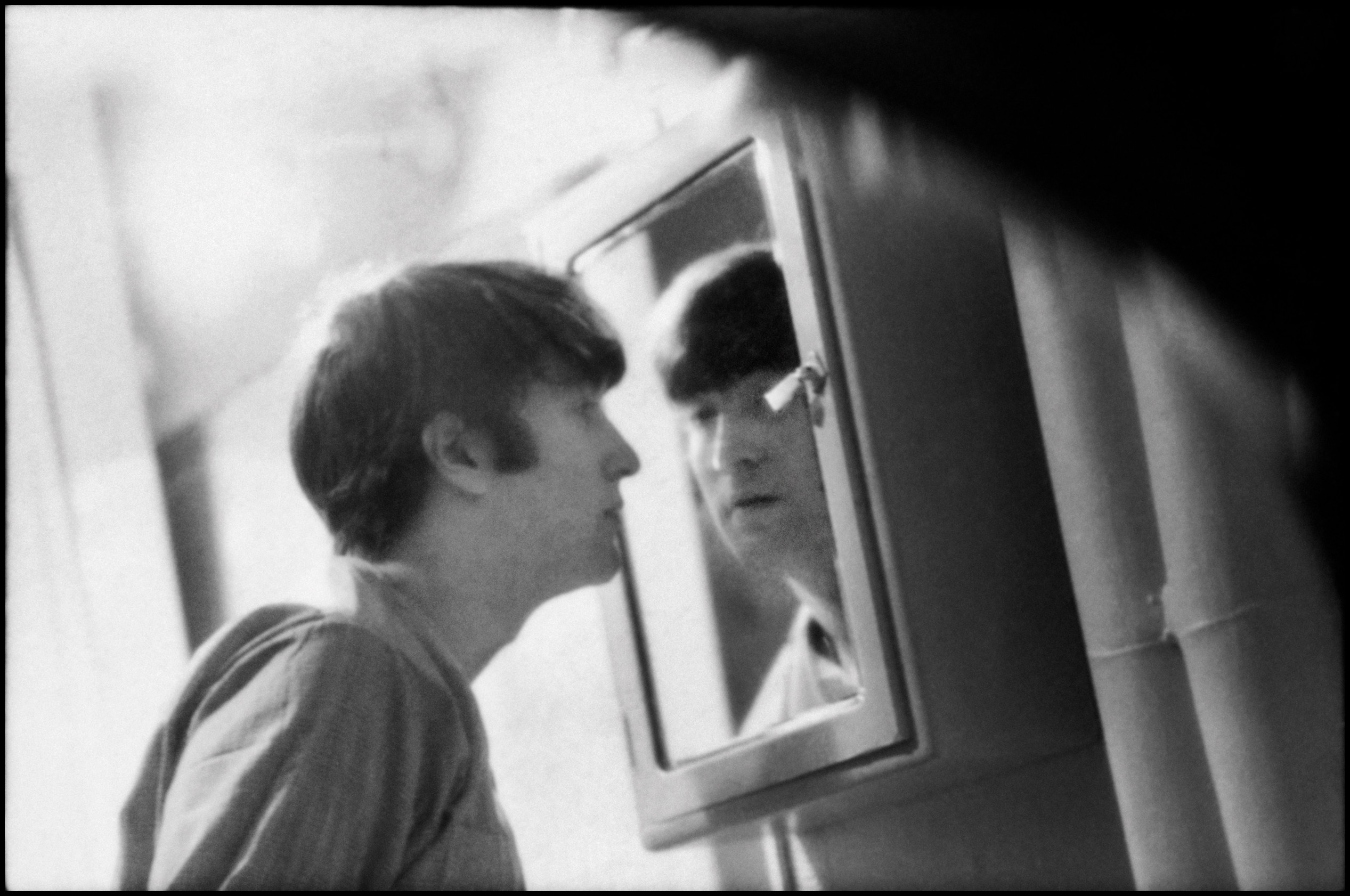
John backstage at the London Palladium, January 12, 1964
PAUL MCCARTNEY: REARVIEW MIRROR
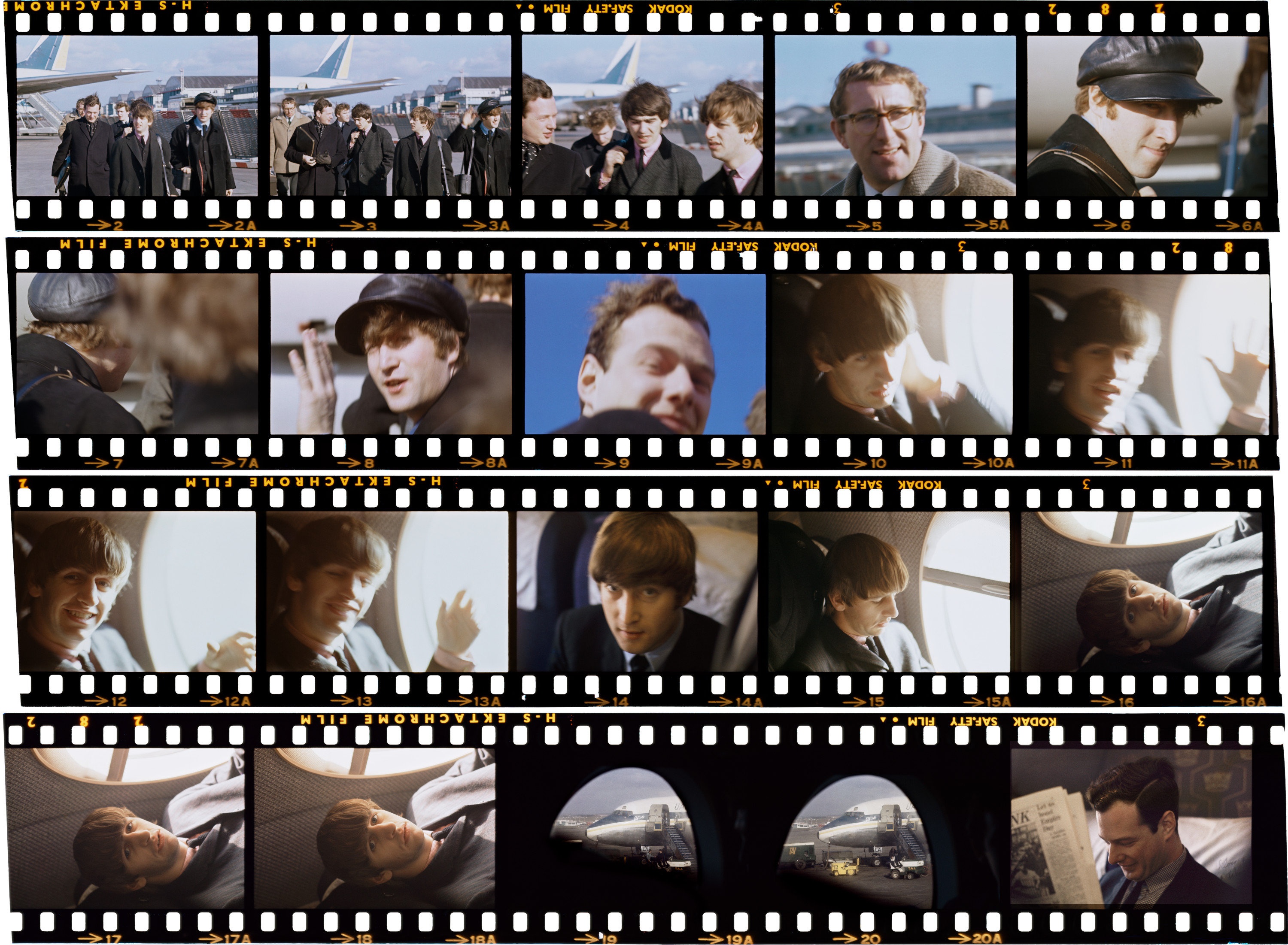
At London Airport (with Brian Epstein, Mal Evans,and Neil Aspinall), February 7, 1964
PAUL MCCARTNEY: REARVIEW MIRROR
What looks like a posed, pensive shot of Lennon reflected in a mirror is actually the blinky moment after he’s put his contact lenses in — another picture shows him in his NHS glasses, which he hated wearing in public.
But they’re also just really good photographs. You can see from the contacts that McCartney is not shooting willy-nilly on his 35mm Pentax but has a sharp eye for light — when it falls on Lennon’s face in the back of a car, or follows the line of Ringo Starr’s jaw next to the window on a plane. McCartney is a consummate storyteller — as in his songwriting, his images are character and narrative-driven. Overall they tell a captivating tale, of four young men having the time of their lives, just before their lives are changed for ever.
★★★★☆
Gagosian Gallery Davies Street, London, Aug 28 to Oct 4; gagosian.com
August 25 2025, 10.30am
August 11 2025, 11.30pm
August 14 2025, 11.00pm
August 27 2025, 3.15pm
August 27 2025, 11.00pm
August 27 2025, 7.20pm

